Bob Dole's Closest Aides Reflect on His Legacy, Treasured Cigar Box and Funeral Wishes: 'He Was Planning Ahead'
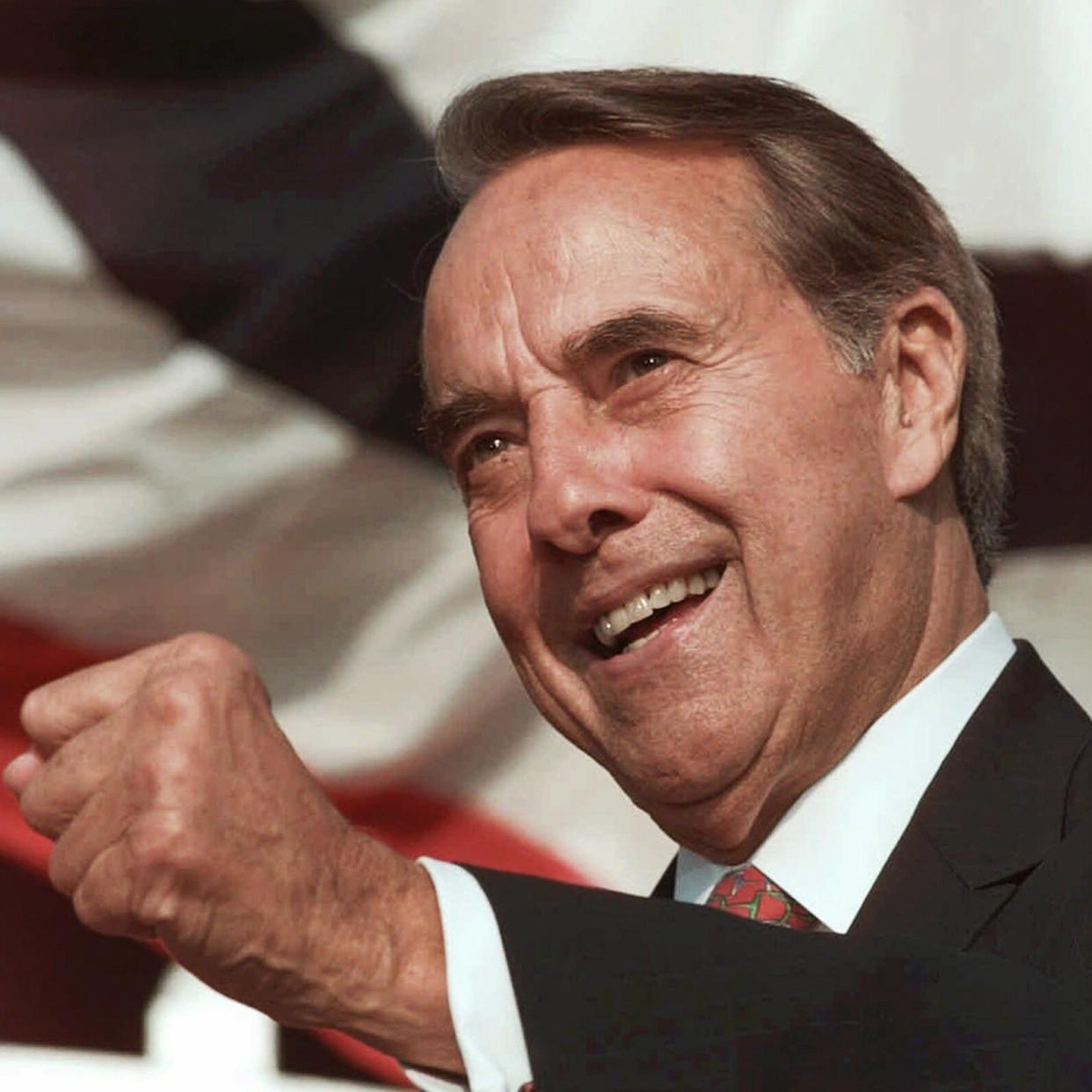
- Oops!Something went wrong.Please try again later.
- Oops!Something went wrong.Please try again later.
Stephan Savoia/AP/Shutterstock Bob Dole
When Sheila Burke last saw Sen. Bob Dole several week ago at his Watergate apartment in Washington, D.C., he was on oxygen and in treatment for stage 4 lung cancer — and wanted to talk politics, next year's midterm elections and celebrating his 100th birthday in two years.
"He was planning ahead," Burke, the Dole's former chief-of-staff, tells PEOPLE in this week's issue.
"His body was failing," she says, "but he was as sharp as a tack."
That would be Burke's final visit with Dole — raised in the Dust Bowl in rural Kansas, gravely wounded by Nazi gunfire in World War II, then lifted by his fellow Kansans into national leadership — who passed on Dec. 5.
"It's a surprise, but not a surprise," Burke says. "And blessed that he went peacefully."
Dole will lie in the U.S. Capitol Rotunda on Thursday, congressional leaders said in an announcement. His funeral will be Friday at the Washington National Cathedral, Burke tells PEOPLE.
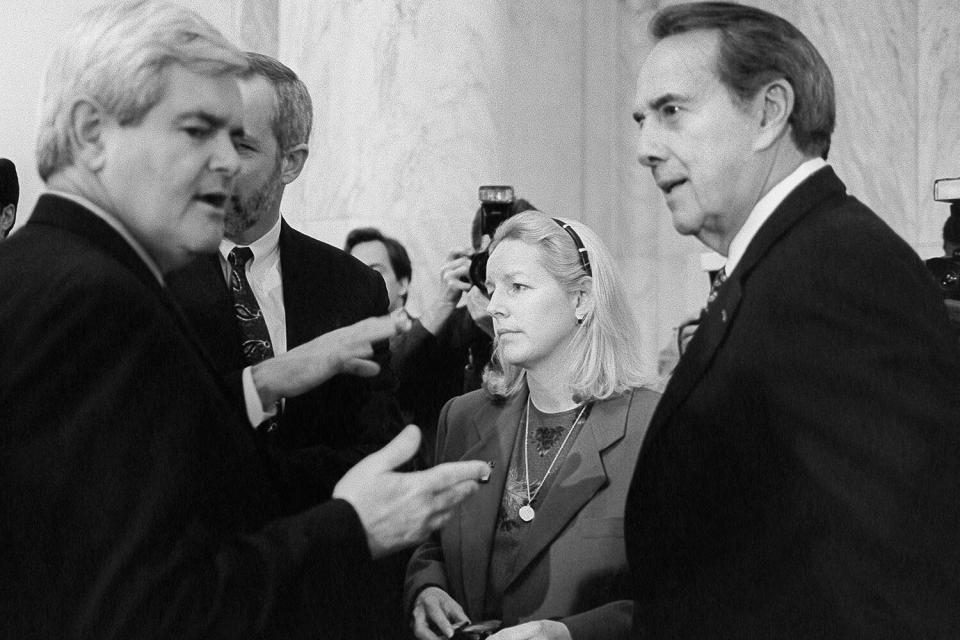
Laura Patterson/CQ Roll Call via Getty Images Sheila Burke with Bob Dole
"He wanted something that was somber, but celebratory," she says. "He chose the people he wanted to have speak, people that represented the sort of array of his interests and commitments and partnerships and relationships across the aisle. I think he wanted something that was a celebration, frankly."
RELATED: Bob Dole, Former Republican Senator and Past Presidential Candidate, Dies at 98
An old-guard Republican who endorsed Donald Trump, Dole's last public act — an op-ed for The Washington Post to publish upon his death — decried a politics of "anger, hatred and violence" and urged unity around Americans' shared values.
"Bob Dole believed in a civil discourse," his long-time speechwriter Richard Norton Smith, the former director of the Robert J. Dole Institute of Politics at the University of Kansas, tells PEOPLE.
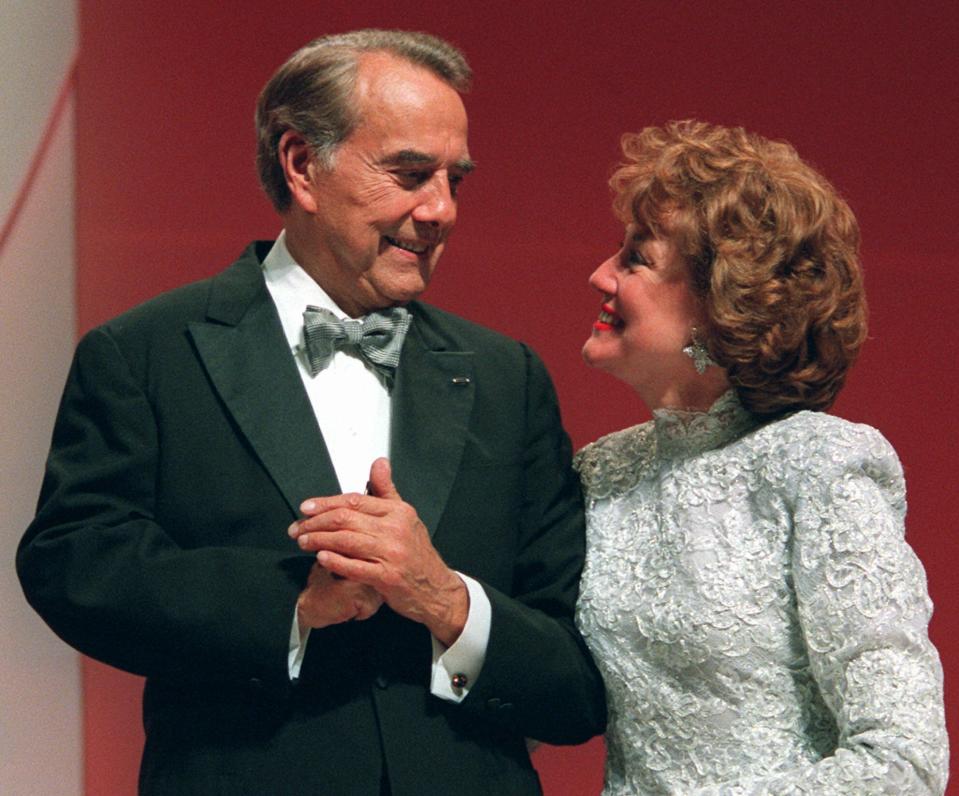
Ruth Fremson/AP/Shutterstock Bob Dole with his wife, Elizabeth Dole
During his 27 years in the Senate, Dole drew on his humble roots in the rural heartland (his grandparents received welfare) and disability (WWII left him with a shattered right arm and neck and spine injuries) and worked with Democrats on safety-net issues like Social Security, child nutrition, and the Americans With Disabilities Act.
"He was absolutely a conservative Republican," says Burke. "But he believed there's always opportunity to reach across the aisle to come to compromise and that's how he behaved."
After he lost to Bill Clinton in the presidential election of 1996, Dole had no hard feelings for his former opponent, who the next year would award him the Presidential Medal of Freedom. "He liked Clinton," says Smith. "He said he was 'a lovable rogue.' "
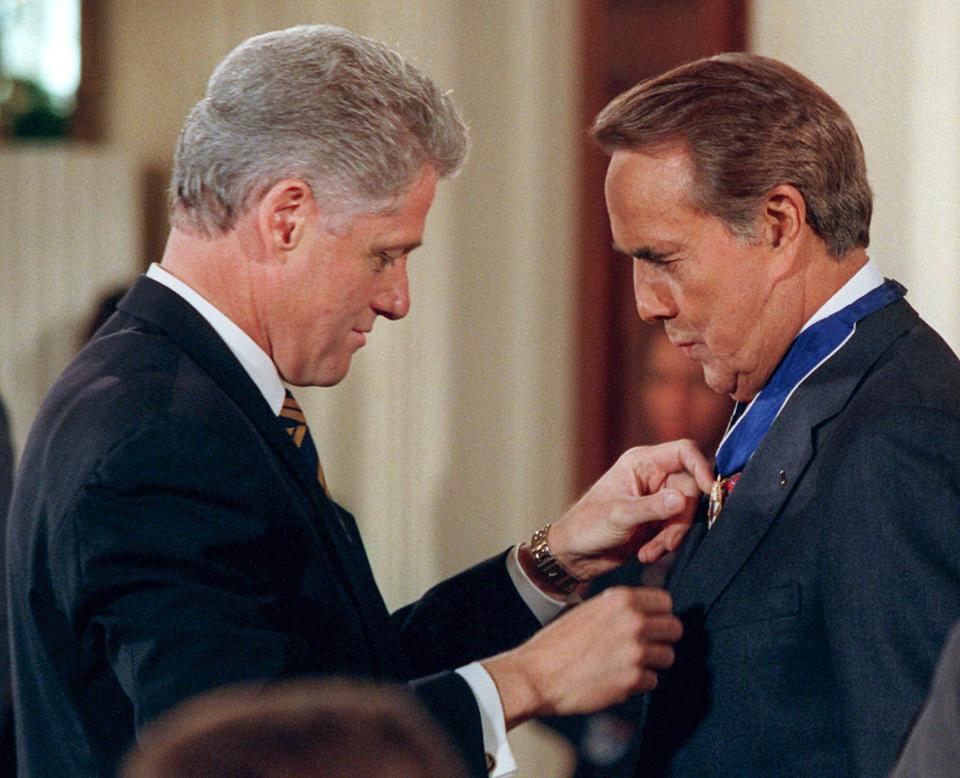
Greg Gibson/AP/Shutterstock Bill Clinton and Bob Dole
Dole never forgot from where he came. After World War II, with his body so gravely injured by bullets he had to relearn how to eat and dress, the people of his hometown of Russell, Kansas donated money into a cigar box set up at a local drugstore to pay for his medical care.
"He kept the cigar box in his desk drawer, he always kept it beside him," says Burke, who worked for Dole for 20 years.
"He spent 60 years in Washington, DC, and yet in a very real sense, he never left Russell, Kansas," adds Smith. "Or more accurately, he brought Russell with him."
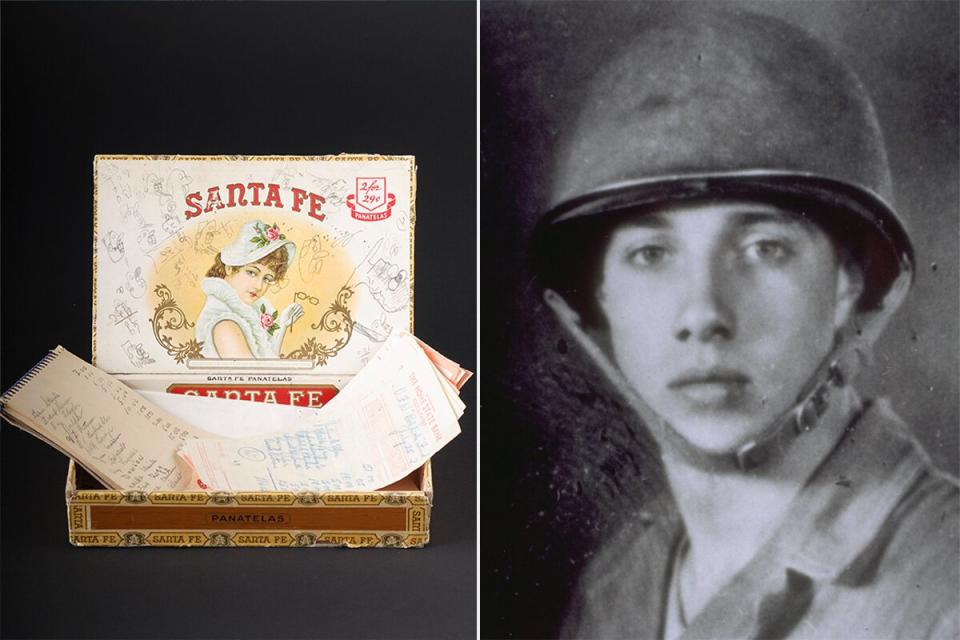
Dole Institute of Politics; Brooks Kraft LLC/Sygma via Getty Images Cigar box that the people of Russell, Kansas placed money to help pay for Dole's war injuries
Also dear to Dole's heart was getting the World War II memorial in Washington built — "one of his proudest accomplishments," says Burke. Dole's wife of 46 years, Elizabeth, will continue his work with veterans, says Smith.
He visited the memorial weekly, even after needing a wheelchair in later years, to greet veterans with a warm handshake with his left hand, since he lost the use of his right arm on the battlefield.
"He never forgot the challenges that people face," Burke says.
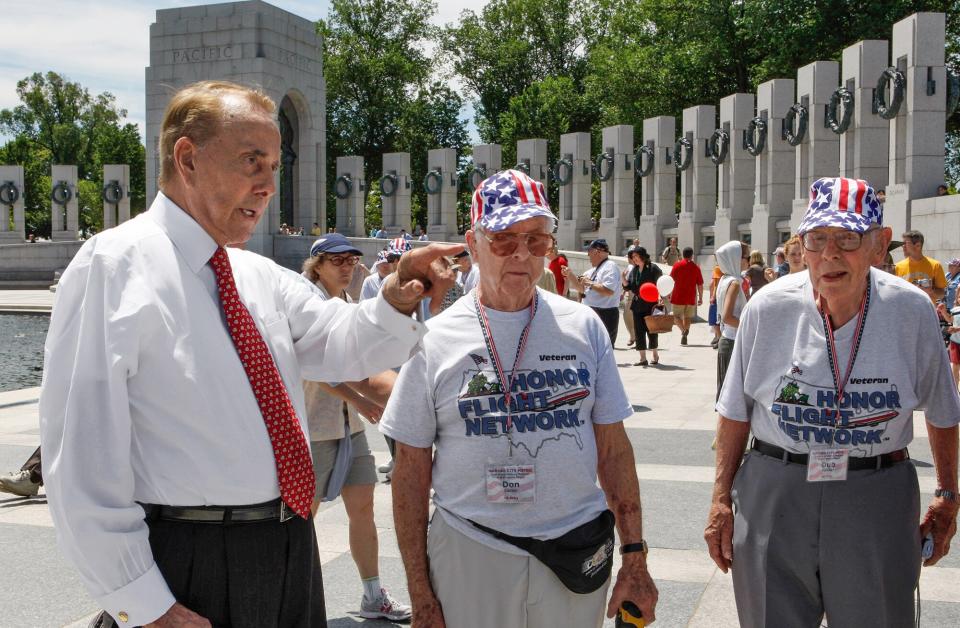
AP Photo/Ron Edmonds Bob Dole at WW II memorial
"If there was a crowd, the first person he would go to would be the person in a wheelchair," she continues. "It was that kind of personal connection that was so important to him."
Says Smith: "Dole very sincerely described himself as the most optimistic man in America. And he believed that. Because of what he had been through. Because of what he had not only endured, but overcome."

